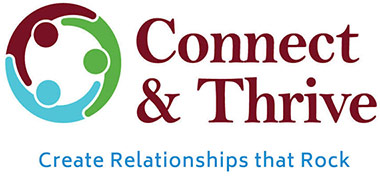Relationship Superpower #2
When you accidentally walk in on someone in the bathroom or step on your partner’s toes when you’re dancing, a simple “I’m sorry” is probably good enough. When we cross a line into behavior that hurts another person or impacts trust, the relationship has been damaged and it’s important to repair the hurt.
Why is apologizing sooooooooo hard?
Most of us have been inadequately trained in admitting and repairing hurts. We are taught from early childhood to give the most cursory apologies. “I’m sorry,” even when mumbled, is generally is good enough to satisfy our parents and teachers and get us off the hook.
Preserving our pride and self image is one reason we don’t apologize. As children many people have been shamed for missteps. Let’s not forget that that we live in a litigious society. Admitting wrongdoing can open the door to legal repercussions. We’ve learned to protect our pride and stay safe.
The ABC’s of Apologizing
A solid apology can strengthen a relationship. A good apology conveys empathy, accountability and a commitment to change. Lets start with unpacking and putting to rest our old school apology to prepare for the new.
How NOT to apologize:
“I’m sorry if you were upset by what I said/did.” This is a slippery apology. It is a kind of “make nice” way of implying that the problem is more about the other person’s sensitivity. It does not acknowledge what the person is upset about nor does it offer any kind of ownership or responsibility for the behavior. One more caution about slippery apologies: “don’t say I’m sorry, but …..” Excuses have no place in an apology.
A friend who received the “I’m sorry you were upset” apology felt anger and outrage at this person’s unwillingness to take responsibility. When I received this apology I felt confused and wary. The words technically were an apology, but I felt uneasy, like I was very nicely being invited to go along with smoothing things over. I want to know that this person understood how their actions affected me and I wanted accountability. Remorse and regret is essential to a sincere apology.
A good apology focuses on feelings and needs
Our feelings are alerts that tell us about whether our needs are being met or not. You could substitute the word values for needs if you prefer. Old school apologies tend to focus on concrete actions and things. If your sister took a dress from your closet to wear without your permission, you might feel angry. You may want respect and choice around others using your belongings. A meaningful apology involves empathy- understanding what matters to the person who was harmed. “I’m so sorry I took your dress without asking you. I understand now how angry you are and that you want respect and choice about whether to lend your clothes.” Naming specific needs really lets the person harmed know you understand.
How to apologize with heart
- Engage in self-reflection prior to talking with the person.What feelings and needs led me to do what I did? How has it affected this person? Take a guess and empathize with their feelings and needs. Given my understanding now, what would I do differently in the future? What kinds of amends might be called for in this situation. Is an apology sufficient or do I need to make reparations in another way?
- Offer empathy to the other person acknowledging their feelings and needs in regard how your behavior affected them.
- Express your regret Express your regret sincerely.
- When and if the other person is ready, offer clarity about the feelings and needs alive for you when you took that action, and the intention you had. This step is not appropriate in all situations, but can be helpful in deepening understanding. “When I interrupted you and corrected the story you were telling, I was worried about how people would see me.” This kind of vulnerability helps us know one another.
- Offer a commitment to doing something different in a future similar situation.Here’s a paraphrase of an apology I heard about on a podcast. This male supervisor made numerous slippery apologies before this one, years later, finally worked:
“I’m sorry for the way I repeatedly sexually harassed you with my words and behavior during the time we worked together. I understand now how powerless and stressed you must have felt and that you wanted to be treated with respect. I’ve reflected on my behavior and I see now that I was acting out my own insecurities by trying to get power over you this way. I’m working with a therapist to continue to grow and change. My intention is to never treat you or any woman that way again.
Steps 1, 2, 3 and 4 are all there. Check it out. If this sounds like a long speech, keep in mind that these different components can be mixed into an exchange with the other person.
Missteps and even “bad” behavior are part of the growth trajectory for most humans. I want to live in a compassionate world where we support each other in this kind of restorative process. Apologies that are sincere, complete and received with an open heart generate healing. Shame and blame does not. Sometimes we may receive an apology but choose not to engage further with the person. Forgiveness does not mean that we have to engage. However in close relationships, amends are an integral part of the landscape and can create trust and intimacy that deepens our journey together. This is new ground for our culture- have fun experimenting!

